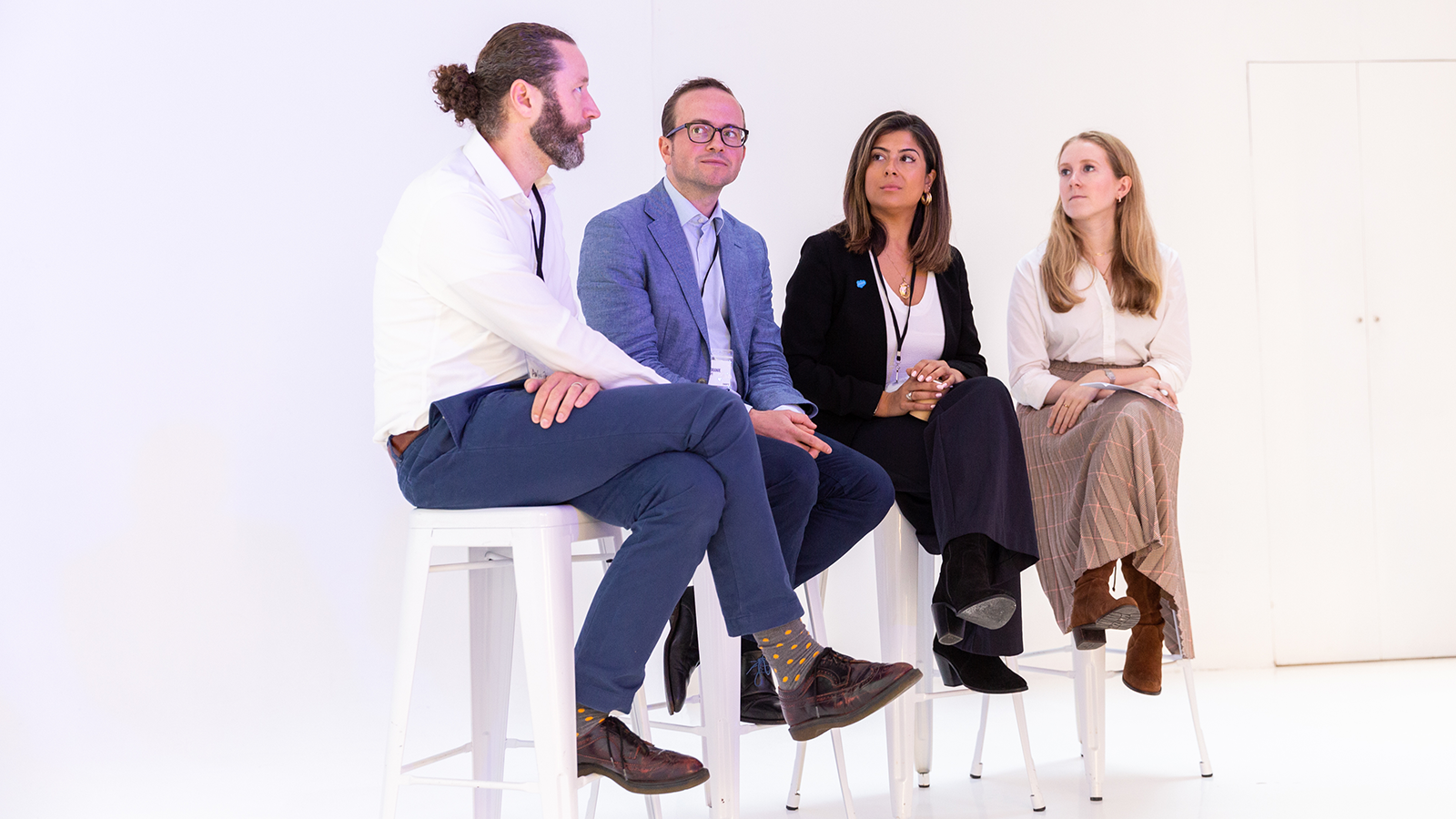DEPT® discusses personalisation with Figleaves and Salesforce


Marketing Director, UK&I
Personalisation is an important pillar of digital marketing strategies. With the rapid evolution of marketing, technology come greater capabilities at the hand of marketers. Investment in MarTech is rising and the bar is set higher. Consumers expect more than a list of products and services when they visit a website. Whether they realise it or not, consumers want businesses to provide them with experiences tailored to their specific needs at that moment.
How brands connect with consumers via personalisation tactics was the topic of discussion amongst panelists at a recent DEPT® event. The panel of Floris Oranje, Managing Director of Managing Director Digital Marketing at DEPT®, Sally Nowroozi, Senior Business Consultant at Salesforce, and Angus Jenkins, Head of E-commerce at Figleaves shared their opinions on the state of personalisation. Diana Pearl, Staff Writer at AdWeek, was the moderator for the breakfast event in London earlier this month.
“Approach personalisation from an audience perspective to serve them better, in a more purposeful way, as a means to understand their needs and guide them through the journey. The approach should be more helpful and less obvious from a sales-perspective”, Sally mentioned, starting the dialogue.
“At Figleaves, there is an added element of complexity, in terms of buying women’s lingerie and supporting the user as they funnel through thousands of intimate products. We don’t want to overload the customer with choice or, equally, compartmentalise them in a space they don’t want to be in. If we narrow down, we run the risk of rejection for being too personalised,” said Angus.
“Previous purchases are our highest value statistic for personalisation, we’re able to get an idea of preferred style, brands, and size. We want our customers to browse and serve up discovery, or else we just become a commodity business and that’s not the brand strategy,” Angus continued to comment.
“Figleaves is bold enough to try different approaches to find out what our audience appreciates and sometimes actions can cause frictions in the UX, or add additional steps. We’ve learnt that it’s all about the execution, ensuring objectives align with relevance.”
A consumer research study conducted by Dept involving 1,000 online shoppers in the UK, reveals one of the most frustrating points with personalisation is being sent recommendations and offers that are not relevant.
Floris said, “This is often as a result of users purchasing an item as a one-off, as a gift, or someone else browsing through their account. The more user-data brands can compile about their customers, ideally first-hand, the more they’re able to accurately tailor touchpoints and enable personalisation to become a useful asset.”
“For instance, customers want to track packages and get updates, but they need to log in and opt-in to be contacted. There needs to be a way to communicate that. We’re constantly battling a balancing act with transparency and how to explain why we need data and what we’re doing with it,” Angus added in agreeance.
“Dynamic data and advancements in MarTech will evolve personalisation, but it needs to be a two-way street with consumers recognising the benefits and providing their details for the sake of personalisation. Connecting the dots between consumer identities, structured and unstructured data will be fundamental for brands to progress, creating an intuitive and channel-less way for brands to speak with customers,” said Floris.
Sally added, “Brands need to stop thinking about personalisation as a project, but use what they have and put on a human hat to incrementally improve design, strategy and marketing. People think of loyalty as a programme, but it’s actually about how you serve your customers and how you define loyalty. Shouldn’t loyalty be defined as a greater definition for the value of engagement?”
When asked how their favourite brands use personalisation, the panellists commended Amazon’s seamless Chatbot feature for easing complicated processes, like returns. The make-up brand Sephora was mentioned for effectively integrating their much-loved, in-store customer service online with a customisable beauty profile. Spotify music player was also acknowledged for ‘getting it right’ for delivering results that don’t feel intrusive.
As an ending note, the trio concluded, a customer’s experience is just as good as the products themselves, and all attempts to connect should be relevant and add value to the consumer.
For more insight on the consumer’s view of personalisation, download DEPT®’s free Whitepaper Report.



